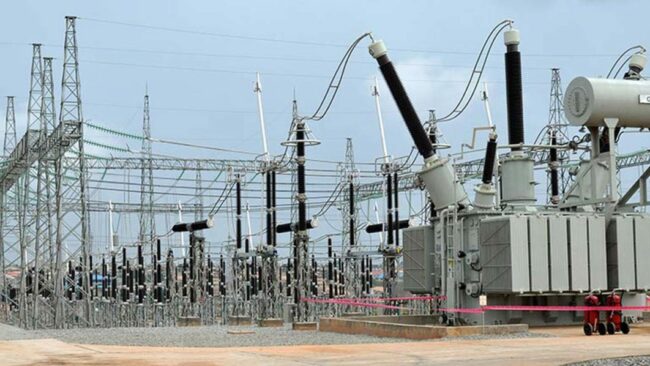The situation whereby electricity consumers are subjected to purchasing transformers and poles, fixing electrical faults, carrying out maintenance, and yet paying tariffs for consumption in Nigeria is abnormal and faulty.
This is the view of the Peoples Democratic Party (PDP) chieftain, Chief Sunny Onuesoke while fielding questions from journalists on Thursday in Warri, Delta State.
He faulted the situation whereby electricity consumers in the country are made to contribute funds to buy electricity transformers and poles and repair faulty materials on their own by electricity distribution companies (DisCos).
He described the act as a dereliction of duty by the electricity companies, arguing that it is the legal duty of DisCos to provide “working and operational equipment” regardless of the debts owed by consumers.
The former governorship aspirant, however, explained that when the cost of fixing a faulty electricity distribution asset is shouldered by customers, they should have a right to a refund and compensation as stipulated by the NERC Act.
Onuesoke stated that the contractual responsibility to provide and maintain transformers and other distribution equipment is borne by the DisCos, stressing that it is a breach of the contractual relationship between customers and DisCos customers to fund the repair and management of electrical assets.
The PDP Chieftain added that the relationship between the customer and the distribution company is contractual in nature, as stipulated by the National Electricity Regulatory Commission (NERC) Act.
He recalled that nearly a decade after the Nigerian government handed control of a large part of its electricity sector to private investors, the sector still struggles with meeting the power needs of Nigerians.
He added that despite the condemnation by the National Electricity Regulatory Commission (NERC) of electricity distribution companies forcing customers to buy or repair electricity assets as a condition for the restoration of power supply, the practice persists.
“But in practice, it seems as if the consumers are the losers. When there is a need to replace faulty transformers, poles, or make repairs in a community, for instance, the electricity companies are not forthcoming.
“There are instances whereby some communities have been in darkness for the past six months or more, even when they have officially reported their faults to the electricity company.
“To resolve the problems, they go for self-help by tasking themselves to buy transformers or fix the electricity faults. When these happen, the light will come up soonest.
“This situation should not arise because consumers pay bills and should get better service for their money. Rather, the case is the reverse.
“The consumers are the ones begging despite paying bills. Even when there is no light for months, the distribution companies will still bring bills covering those months of darkness (for those on the estimated bill).
“This is corporate cheating. The electricity companies see the consumers as fools. Whether they give them light or not, they will still pay bills,” Onuesoke lamented.
FULL LIST: 45 visa-free countries Nigerian passport can travel in 2024
Nigeria sits behind Ghana, Guinea, Kenya, Lesotho, Morocco, Benin Republic and Namibia which are at…
How my brother and I became professor same day in same varsity —UNILORIN don
Recently, two brothers –Ahmed Oloduowo Ameen and Mubarak Oloduowo Ameen– were promoted to…
‘I expected N2,000 as my share from sale of human head we got at Saki cemetery’
Thirty-two-year-old Alli and Abdullahi, aged 35, who were the two suspects arrested by…
Why Port Harcourt refinery is yet to start production—Soneye, NNPCL Chief Comm Officer
Mr Femi Soneye is the Chief Corporate Communications Officer (CCCO) of the…
Fear women, fair women and Minister Ojo
Betta Edu, Sadiya Umar-Farouq and Halima Shehu are the reigning women in our…
What you should know about players in Nigerian 2024 AFCON team
The Nigerian football team have appeared in the finals of the Africa Cup of Nations on twenty different occasions. Nigeria has…
